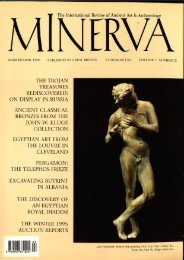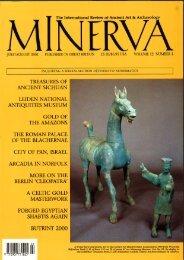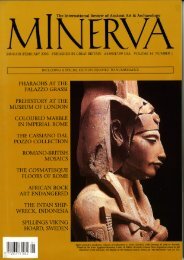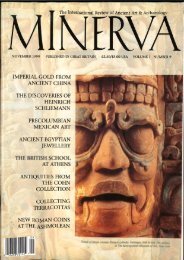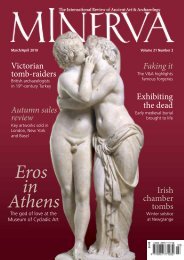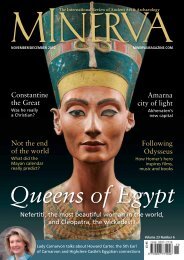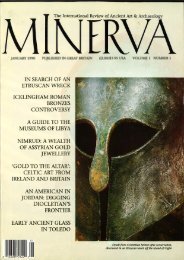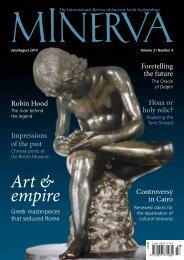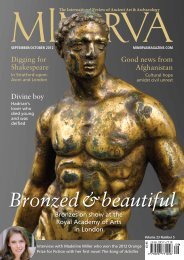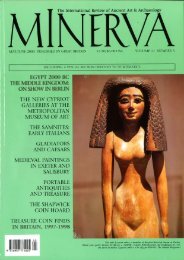Download
Download
Download
Create successful ePaper yourself
Turn your PDF publications into a flip-book with our unique Google optimized e-Paper software.
Hannibal<br />
2<br />
with, and the mythology which surrounds<br />
him, make him an irresistible<br />
personality for writers of the<br />
ancient world who seek to entertain<br />
as well as transmit the past.<br />
Aside from making a good story,<br />
Hannibal’s boyhood oath, taken at<br />
the age of nine, gives Polybius – the<br />
more objective of the two historians<br />
– an explanation for Hannibal’s<br />
tireless fight against Rome, a fight<br />
he continued even after Carthage’s<br />
defeat in the Second Punic War.<br />
It was perhaps important for<br />
Polybius, who was very interested<br />
in characterisation and motive, to<br />
reconcile the implacable enmity of<br />
a man whose qualities he admired<br />
with the city he esteemed equally<br />
greatly. For Livy, who was on the<br />
whole less concerned with evidence<br />
and keen to draw a moralising message<br />
from his histories, Hannibal’s<br />
vices – ‘inhuman cruelty, an utter<br />
absence of truthfulness, reverence,<br />
fear of the gods, respect for oaths,<br />
sense of religion’ (Livy 21.4.9) –<br />
explained why, although a tactical<br />
genius, he lost the war. Livy saw the<br />
war with Hannibal as the zenith of<br />
Roman manly virtue and piety to<br />
the gods, and thus as an age to be<br />
admired and emulated in the time of<br />
decline and decadence in which he<br />
saw himself.<br />
Moreover, the more impressive<br />
and fearsome the enemy and<br />
the greater the setbacks, the more<br />
impressive the Roman achievement<br />
seems, and the more steadfast and<br />
morally courageous the Romans<br />
become. Yet, for all his alleged brutality,<br />
it is recorded that Hannibal<br />
was fluent in the language, literature<br />
and learning of the Greeks,<br />
and was an accomplished statesmen<br />
and politician – he even held the<br />
office of suffete (the rough equivalent<br />
to consul) in Carthage after<br />
the defeat by Rome. Of course this<br />
sinister mix of physical prowess,<br />
astounding ability and unmatched<br />
cruelty is attractive to the Romans<br />
who overcame him, but is there a<br />
deeper reason for these stories than<br />
the sensationalist tendencies of<br />
Roman writers<br />
A possible explanation lies in<br />
the way Hannibal sought to present<br />
himself. With his extensive<br />
Greek education – he was tutored<br />
by a Spartan – he would have been<br />
well aware of the precedent set by<br />
Alexander, and followed by later<br />
Hellenistic generals, of bringing an<br />
entourage of learned men to record<br />
the glorious victories and spectacular<br />
successes he achieved. These<br />
Minerva January/February 2013<br />
9



